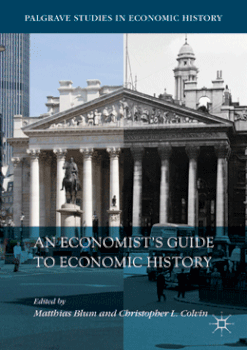|
These are strange times to work in higher education. (Of course, these are strange times for many other sectors besides!) In addition to more fundamental existential questions which I am not qualified to comment on, there are two I do feel a little more equipped to address here: (1) delivery of teaching material and student assessment during a pandemic; and (2) contents of economics syllabi in light of the murder of George Floyd.
COVID-19 First the obvious. COVID-19 presents a very particular set of challenges to the way we work in universities, especially the way we teach. We are going to have to develop ways of interacting with students that are high quality substitutes for traditional classroom teaching and face-to-face supervision. This switch will be hard for two reasons. First, because of announced budget cuts, universities are not necessarily going to be putting in the support we need to make distance learning work well. And second, even if we had the right training and resources, academics are not the most technologically savvy people! One thing that I trialed last year (pre-pandemic) in my Communicating Economics module was to get students to write short policy briefs in the style of VoxEU op-ed blog posts on economic topics that are in the news, and to video short policy communications distilling economic lessons for non-economists. I will definitely be doing this again. These activities are relatively low-tech assessment solutions from the perspective of the educator (students are much better at making videos than us!). Crucially, they present an opportunity to students to learn how to use their economics to solve real-world problems that are happening today. These activities were also excellent way for me to work with students on their writing and presentation skills. A number of my students took a long-run perspective on their chosen topic, incorporating economic history in their analysis. I was very impressed with their efforts. And now I will have a new resource for students to use: the COVID-19 Economic Observatory. This great new website, funded by the ESRC, brings together academic economists from across the UK to distill useful economic knowledge about pressing issues of the day. There are already a series of Lessons from History posts on the website (including one by me on the Spanish flu!). There are more such policy briefs to come. Another great resource for these students is CoronaNomics, a new series produced by Econ Films. They are putting together an incredible line-up of interviewees from the world of economics. Students will be able to interact directly with leading scholars. George Floyd The second change sparked by recent events concerns the contents of curricula. If the police killing of George Floyd tells us anything, then it is that slavery has cast a very long shadow on world history. Economists and economic historians have already made some valuable contributions to the study of slavery and discrimination (see the reading list put together by the American Economic Association), but there is a lot more work to be done in this area - especially work which incorporates interdisciplinary perspectives. These contributions must feature much more prominently on economic history curricula, also in courses taught outside of the US; racism is not only an American phenomenon! An Economist's Guide to Economic History has a great chapter for students and their teachers to start out with, by Richard Steckel on Slavery and Discrimination. In it, Richard frames the origins of modern day discrimination in the US as a reaction to the arrival and maturation of a new generation of African Americans following their emancipation, which challenged whites in the economic and social realms. We hope to commission more work on discrimination, racial disparities and inequality for the second edition of our book. Chris.
0 Comments
|
AuthorChris Colvin is an economic historian based at Queen’s University Belfast, UK. Archives
March 2022
Categories |
Matthias Blum and Christopher L. Colvin (Eds.), An Economist's Guide to Economic History,
Cham: Palgrave Macmillan (2018). DOI: 10.1007/978-3-319-96568-0. ISBN: 978-3-319-96567-3.
© 2018-2022 Blum and Colvin.
Cham: Palgrave Macmillan (2018). DOI: 10.1007/978-3-319-96568-0. ISBN: 978-3-319-96567-3.
© 2018-2022 Blum and Colvin.

 RSS Feed
RSS Feed